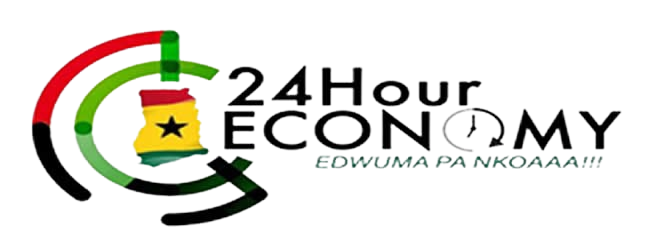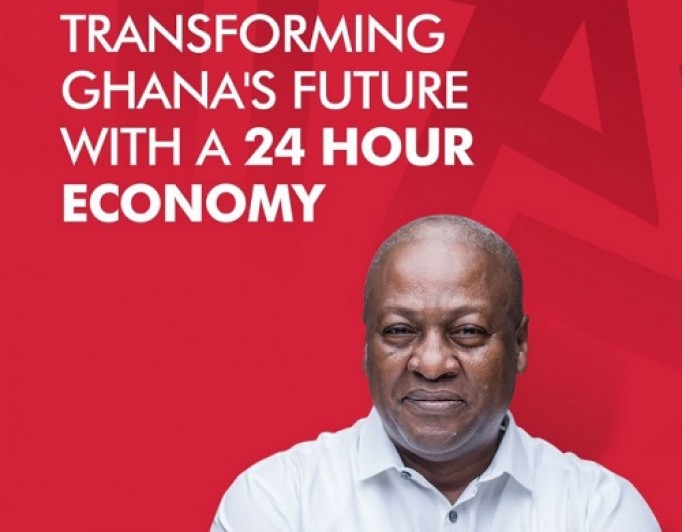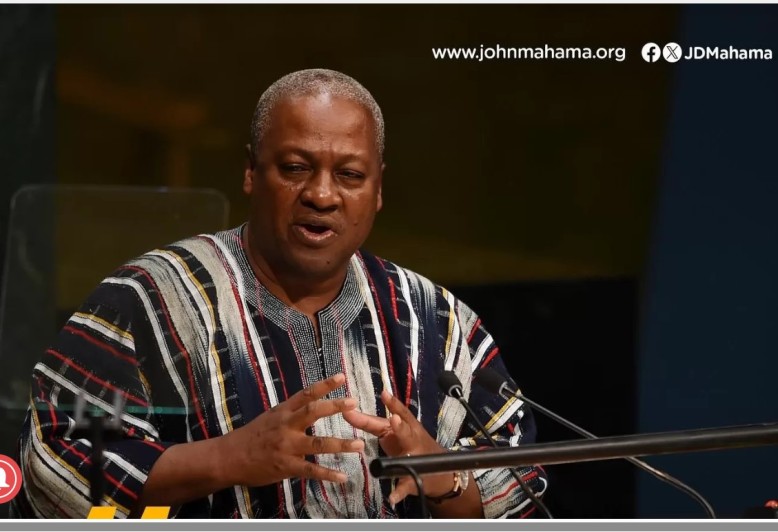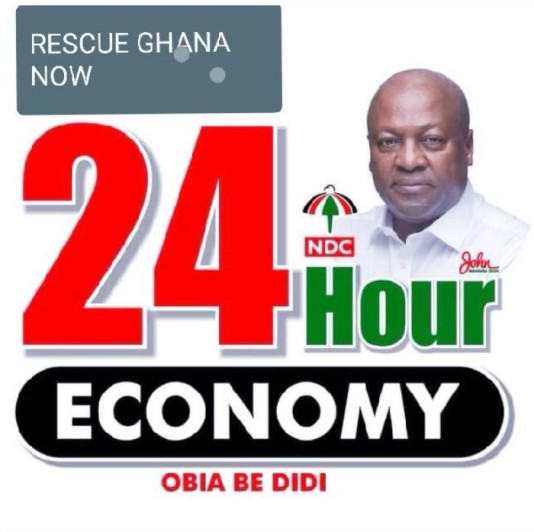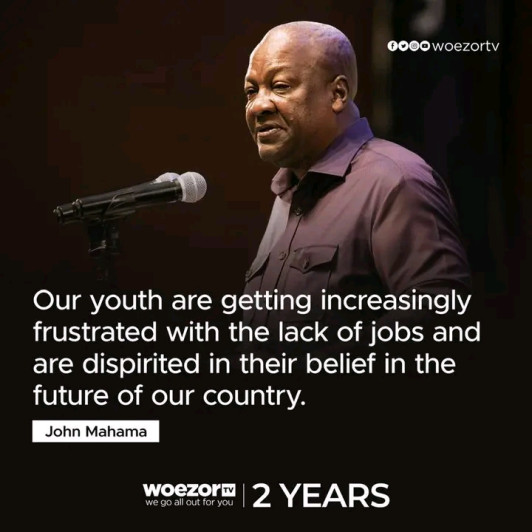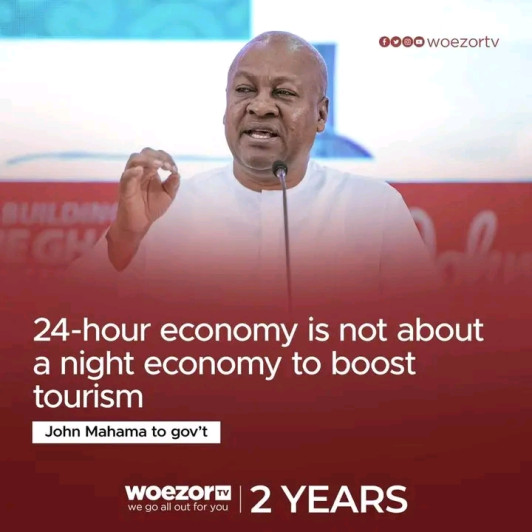
24-Hour Economic Policy-Survival for Ghana Economy
A 24-Hour Economy: Ghana’s Path to Economic Revival?
Ghana, like many developing nations, has faced a multitude of economic challenges in recent years. High inflation, mounting debt, rising unemployment rates, and sluggish economic growth have all contributed to the strain on the country’s economy. However, there is renewed hope on the horizon as John D. Mahama, the National Democratic Congress (NDC) Flagbearer, unveils a transformative policy innovation – the 24-hour economy. This visionary concept has the potential to be a game-changer for Ghana, offering sustainable solutions to the nation’s pressing economic issues while following in the footsteps of other successful developing economies.
Understanding the 24-Hour Economy
The idea behind a 24-hour economy is to encourage and enable businesses to operate around the clock. This entails extended working hours, particularly for sectors such as manufacturing, services, and entertainment, to stimulate economic activity. While it may seem ambitious, this concept has proven effective in several developing economies.
One of the most compelling aspects of the 24-hour economy is its potential to generate sustainable employment. By expanding working hours and creating a flexible work environment, businesses can increase their productivity and, consequently, their need for a larger workforce. This results in more job opportunities for Ghanaians, reducing the country’s persistently high unemployment rate. The policy is also likely to enhance skill development and foster entrepreneurship as businesses innovate to meet the demands of a 24-hour economy.
Learning from Successful Models
Ghana can draw inspiration from countries that have successfully implemented the 24-hour economy model. For instance, South Korea has a thriving nightlife and shopping scene that contributes significantly to its economy. The country is known for its “work hard, play hard” culture, which has created a vibrant and dynamic labor market. Similarly, cities like New York and Singapore have 24-hour financial districts that have attracted international businesses, boosting their economies.
In the context of Ghana, this model could be applied to various sectors, such as manufacturing, agriculture, healthcare, and information technology. By extending working hours and embracing a more flexible work culture, Ghana can significantly improve its economic output.
How a 24-Hour Economy Works:
- Extended Operating Hours: Under a 24-hour economy, businesses across various sectors extend their operating hours. This includes manufacturing, retail, healthcare, entertainment, and services.
- Flexibility: Workers may be employed on flexible schedules, enabling them to choose shifts that suit their preferences. This flexibility caters to a diverse workforce and accommodates different lifestyles.
- Increased Productivity: By operating continuously, businesses can significantly increase their productivity. Machinery and equipment can be utilized continuously, reducing idle time and production costs.
- Job Creation: Extended operating hours create more employment opportunities. Businesses that operate round the clock require more staff, including shift workers, managers, and support personnel.
- Enhanced Services: Services such as healthcare, public transport, and emergency response systems are readily available at all hours, improving public well-being and safety.
- Infrastructure Development: The development of a 24-hour economy often requires infrastructure improvements, such as better lighting, transportation options, and public safety measures. These investments can further stimulate economic growth.
Benefits of a 24-Hour Economy:
- Increased Economic Activity: Extended operating hours mean more economic activity. This translates into increased revenue generation for businesses, leading to higher tax revenues for the government.
- Improved Work-Life Balance: Flexible working hours allow employees to have better control over their work-life balance. This can enhance overall well-being and job satisfaction.
- Enhanced Economic Resilience: A 24-hour economy is more resilient to economic shocks. It can better absorb disruptions, such as natural disasters or unexpected events like the COVID-19 pandemic, as some sectors continue to operate despite challenges.
- Reduced Congestion: A 24-hour economy can help reduce congestion during peak hours. With businesses operating around the clock, people can choose when to shop, travel, or access services, spreading the load on infrastructure.
- Increased Tax Revenue: With more economic activity and employment, governments can collect higher tax revenues. This additional revenue can be reinvested in public services, infrastructure, and social programs.
- Diversity and Inclusivity: A 24-hour economy can cater to the diverse needs of a population. It accommodates night owls, shift workers, and individuals with various lifestyle preferences, creating a more inclusive economic environment.
- Economic Growth: A 24-hour economy contributes to overall economic growth. By operating continuously, sectors like manufacturing, logistics, and retail can produce and deliver goods more efficiently, driving the nation’s economic development.
In summary, a 24-hour economy is a dynamic economic model that offers numerous benefits, including job creation, increased economic activity, and improved work-life balance. It can enhance a nation’s economic resilience, reduce congestion, and provide increased tax revenues, ultimately fostering economic growth and prosperity. However, successful implementation and management are essential to ensure that these benefits are realized while addressing potential challenges like worker fatigue and safety concerns.
Source: Korsi Dzokoto I Economic Policy & Financial Analyst I Waxson.waxson@gmail.com I WAXSON ADVISORS
Disclaimer: "The views expressed on this site are those of the contributors or columnists, and do not necessarily reflect 24houreconomy.org’s position. 24houreconomy.org will not be responsible or liable for any inaccurate or incorrect statements in the contributions or columns here."
Share On Social Media
24-HOUR ECONOMY
Economy
Related News
News

24-Hour economy policy a major improvement on past fragmented initiatives – IMANI Africa
Read More
GPHA launches full 24-hour operations at Tema and Takoradi Ports in response to presidential directive
Read More
